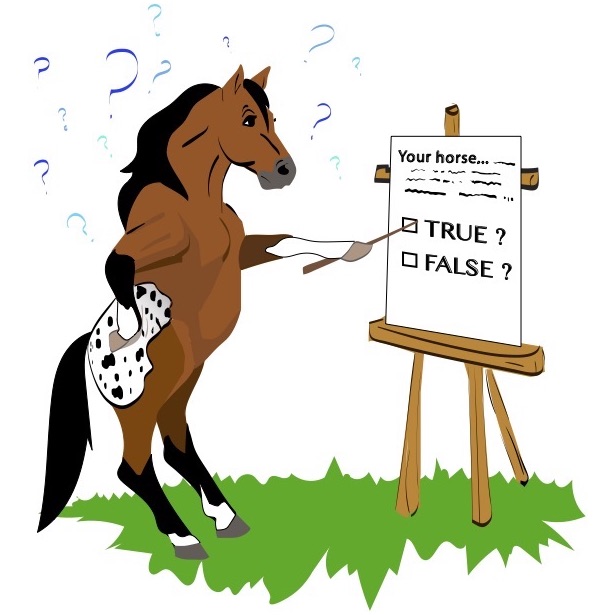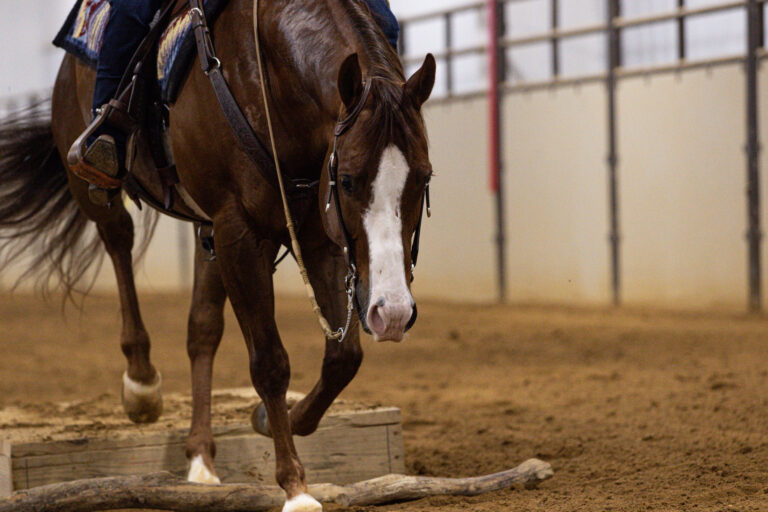
1. True or false: Horses learn only through repetition.
T / F
2. What does “breaking the loop” for your trail horse mean?
A) Riding him in small circles both ways until he calms down.
B) Not letting him know when the turn for home has occurred.
C) Making sure he knows when the turn for home has occurred.
3. True or false: If your horse doesn’t understand what you’re asking or finds it difficult to respond, he may buck out of frustration.
T / F
4. True or false: Gates can be a focus of conflict for pastured horses because they “force” the horses into closer proximity than they would normally choose on their own.
T / F
HOW’D YOU DO? (Answers below.)
Book: How to Think Like A Horse: The Essential Handbook for Understanding Why Horses Do What They Do
Products we feature have been selected by our editorial staff. If you make a purchase using the links included, we may earn a commission. For more information click here.
1. F is correct. A lot of repetition isn’t necessarily required. Clinician Linda Tellington-Jones says that if horses can learn a bad habit in one session, they likely can learn a good one. Obviously, some repetition is useful to lay down the neural pathways (in the brain) for learning, but hundreds of repetitions are not typically necessary—and can even create boredom, resistance, and stress, says the clinician.
[MORE: Behavior myths busted by Linda Tellington-Jones.]
2. B is correct. Clinician Jonathan Field says you should keep your horse guessing about the length and direction of your trail ride. Instead of always making the same loop, so that your horse begins to anticipate when he’s on the way home or back to the trailer, break things up. Go home a different way, or when you reach your starting point, don’t stop. Keep going in a new direction for a while so he can’t always predict what’s going to happen next. That way, he learns he might as well just wait and listen to you.
[MORE from Jonathan Field on training your trail horse.]
3. T is correct. Don’t underestimate the degree to which confusion can cause your horse to act out. As experienced rancher and author Heather Smith Thomas says, if your horse is confused or frustrated with how you ask for a lead change, for example, he may express his frustration with a buck.
[MORE from Heather Smith Thomas on keeping your horse from bucking.]
4. T is correct. Horses congregate at gates, which can be stressful for both dominant and subordinate horses. When you collect your horse from pasture, be careful to clear a path for him through his pasture-mates to avoid any conflict or aggression between horses as you approach the gate.
[RELATED: Dealing with your mare’s hostile behavior.]
Don’t miss out! If you’re not already receiving H&R’s fun and informative newsletter, sign up right now for The Ride. It’s *free*!






